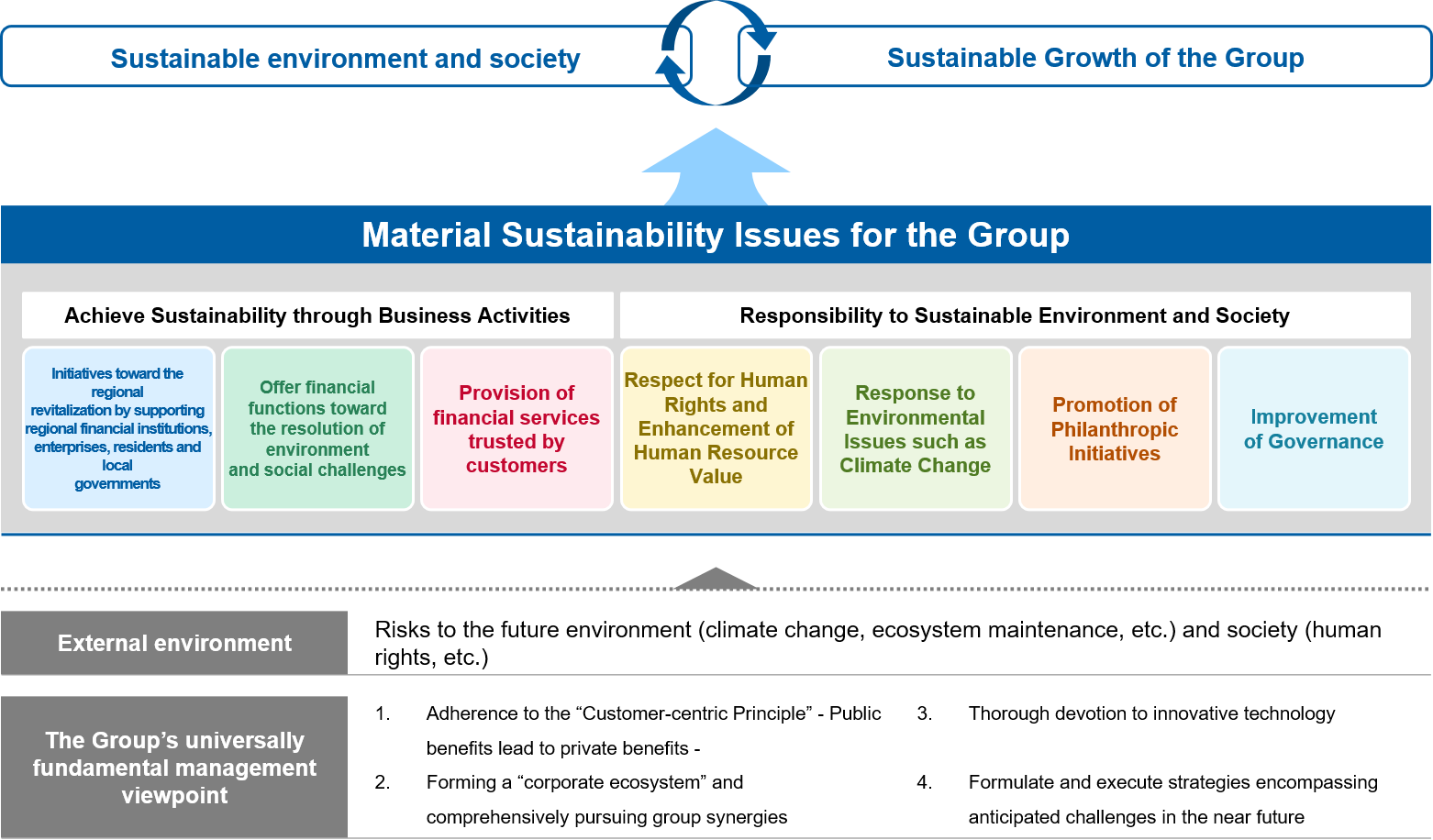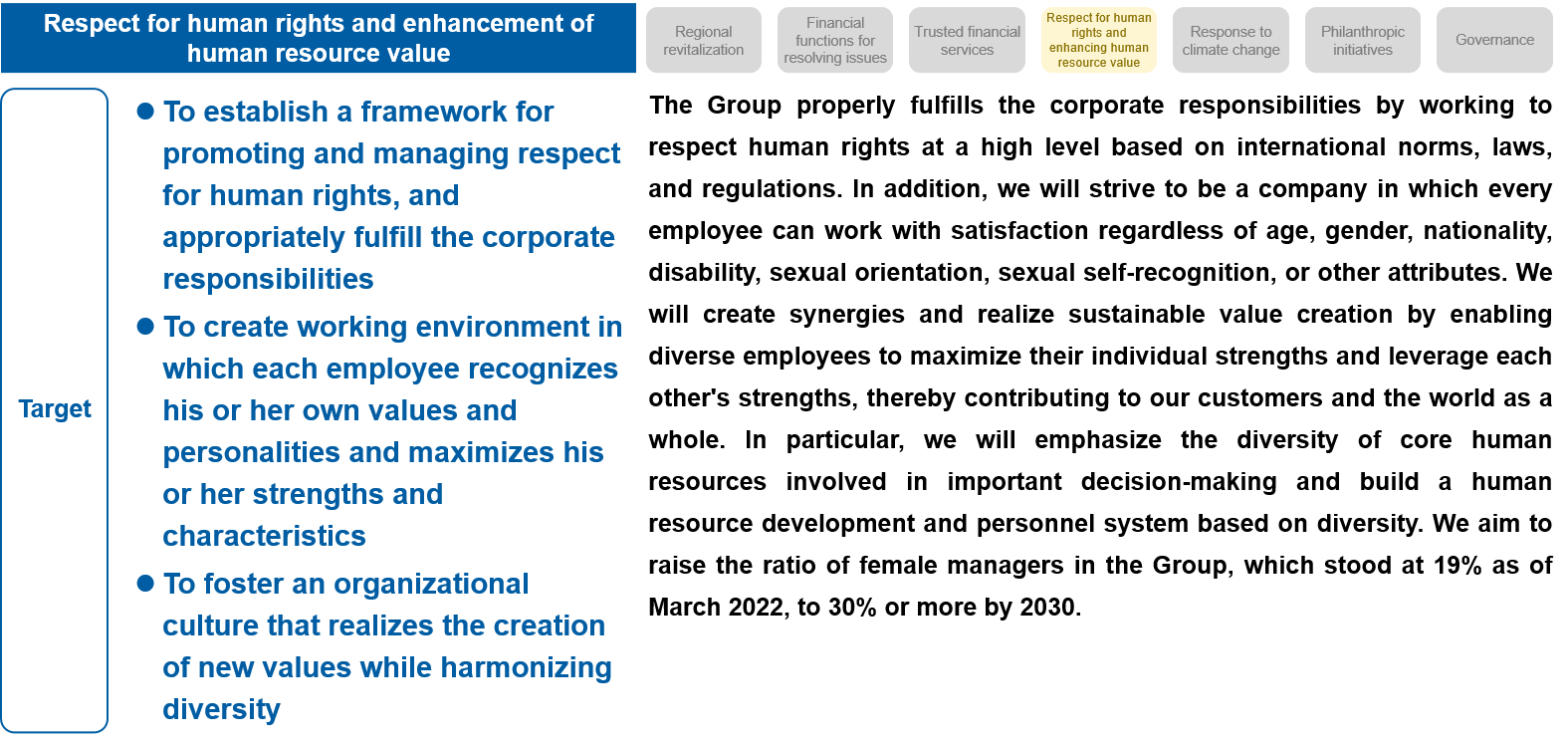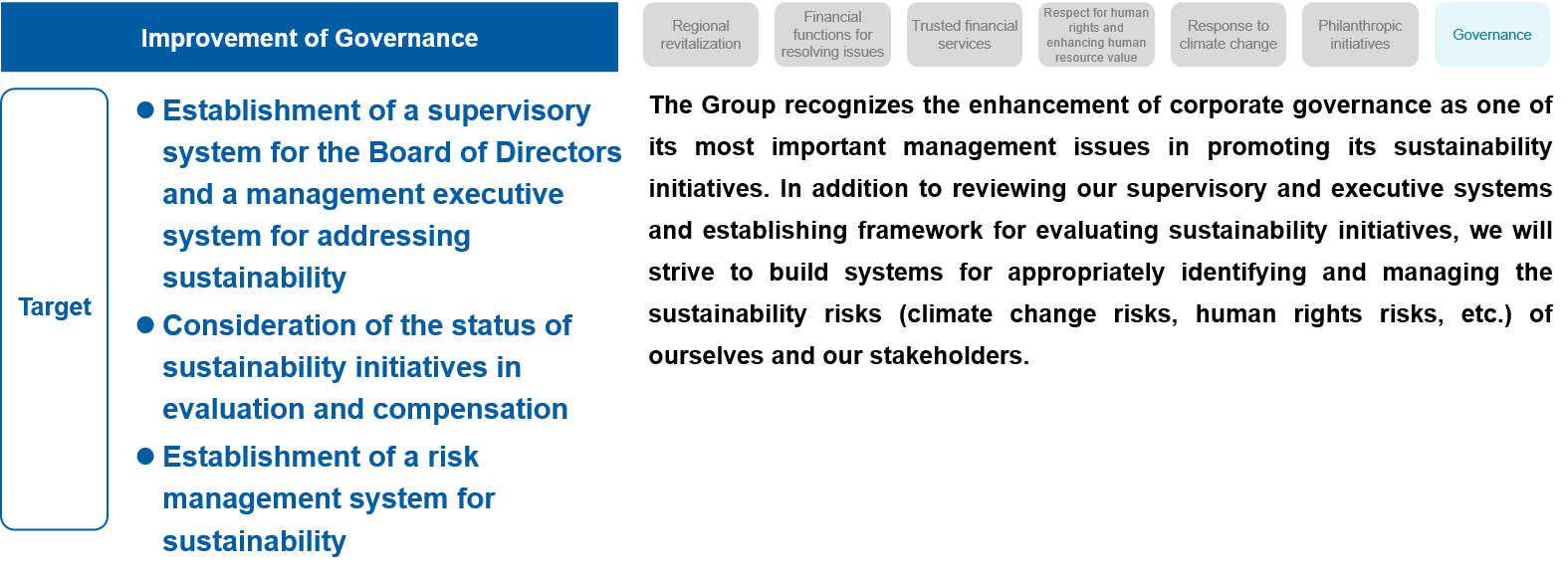The SBI Shinsei Bank Group (“the Group”) has clarified the material sustainability issues to be addressed in the medium to long term and established its sustainability targets in order for the Group to steadily solve those issues in a unified manner.
The Group's sustainability targets consist of eight areas based on the material sustainability issues in line with “achievement of sustainability through business activities,” one of the core strategies of its medium-term plan — “the SBI Shinsei Bank Group's Medium-Term Vision” commenced in fiscal year 2022, along with “responsibility to sustainable environment and society.” With those targets, the Group will seek to create a virtuous cycle in which we achieve sustainable growth for the Group and further contribute to the sustainability of the environment and society by engaging in businesses that solve customers' and society's environmental and social issues and gaining the support of customers.
• The SBI Shinsei Bank Group's Sustainability

• Sustainability Targets of the SBI Shinsei Bank Group








|
FY2024 Progress Update |
|
|
Financing for solving environmental and social issues |
・The cumulative amount of sustainable finance origination reached 2.6 trillion yen, achieving the annual target as a group. -SBI Shinsei Bank communicated with customers in high GHG-emitting industries using its own engagement sheet at least once per year. Contributing to the solution of environmental and social issues from a global perspective -The Transition Task Force Rulebook was developed, and through annual reviews, the bank’s expertise has accumulated and enhanced. Building a flow of funds to solve environmental and social issues -Showa Leasing and Aplus also achieved their respective targets by promoting small scale solar power projects and residential solar loans. |
|
Respect for human rights and enhancement of human resource value |
・The group achieved its target ratio of female managers, reaching the milestone figure of 18% or more as set in the Action Plan of the Women’s Activities Act. ・Human rights due diligence was conducted for employees, and measures were implemented to address issues. Establishing a human rights due diligence framework for business partners remains a challenge going forward. |
|
Response to climate change |
・Some of our offices have switched to renewable energy sources, contributing to the reduction of greenhouse gas (GHG) emissions. ・The outstanding balance of project finance loans for coal-fired power generation has steadily decreased. |
|
Promotion of philanthropic initiatives |
・The Group positions philanthropic activities as “initiatives that employees can participate with empathy and that have a positive impact on the creation of a sustainable society.” In FY2024, a total of 753 employees participated in 31 such activities. |
|
Improvement of governance |
・The Group Sustainability Committee structure was reorganized, and theme based subcommittees were established to deepen cross-company and cross-departmental discussions and updates on key issues. ・The Group Sustainability Committee primarily handles matters that require group wide discussion at the executive management level. ・Sustainability related items have been incorporated into performance evaluation criteria. ・The Group continues to gather information on linking sustainability with executive evaluation and compensation, and on building a sustainability risk management framework. |